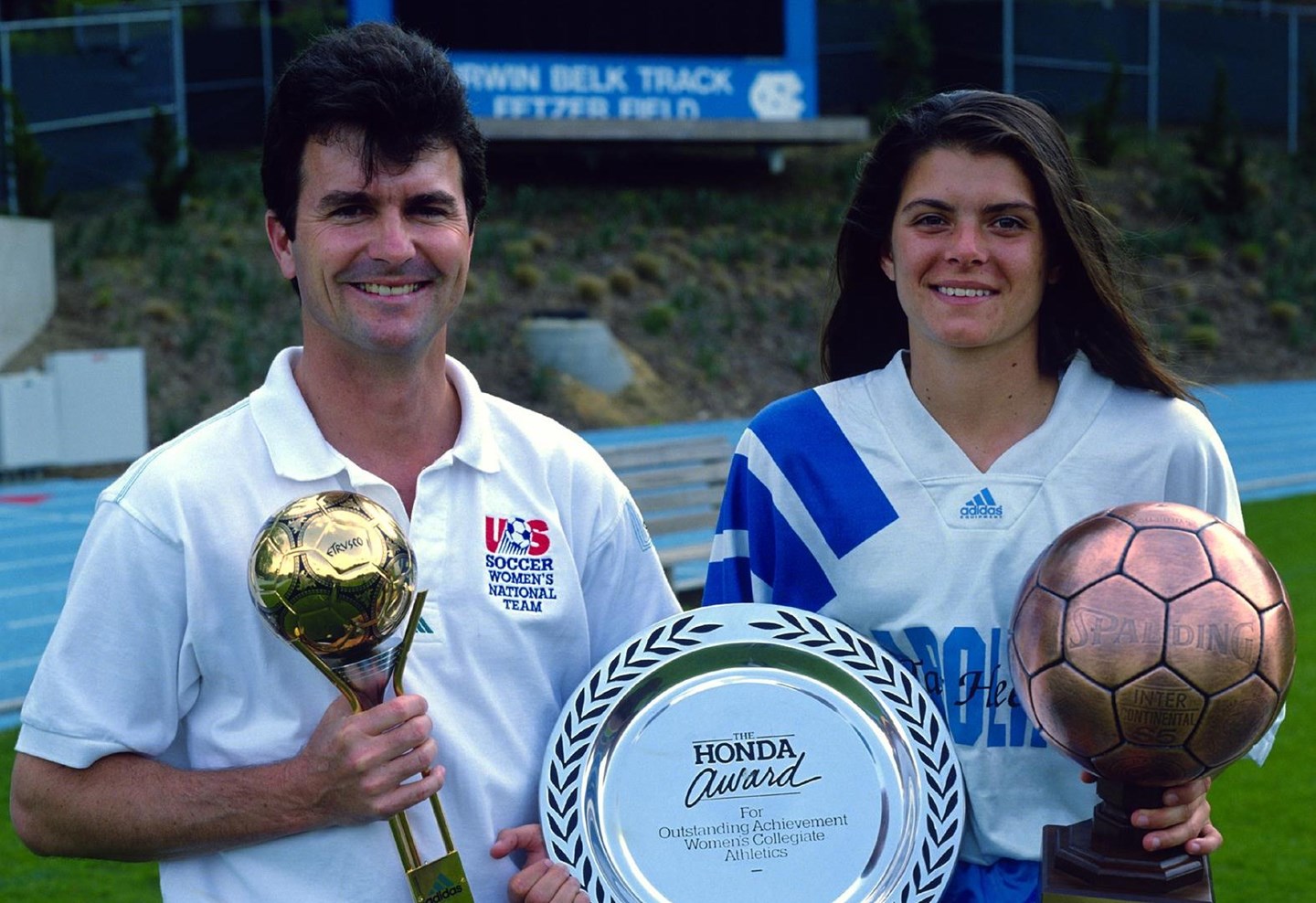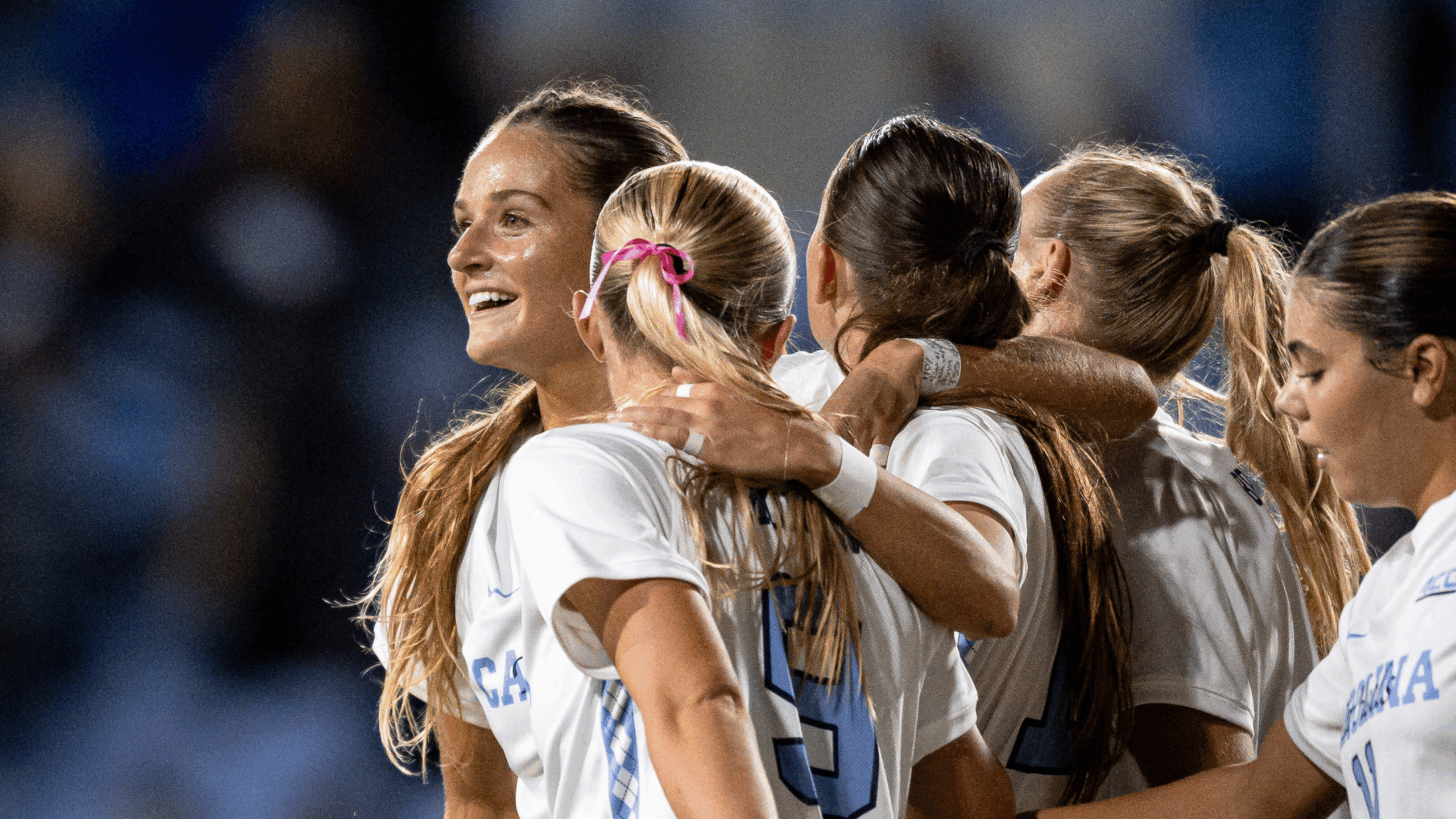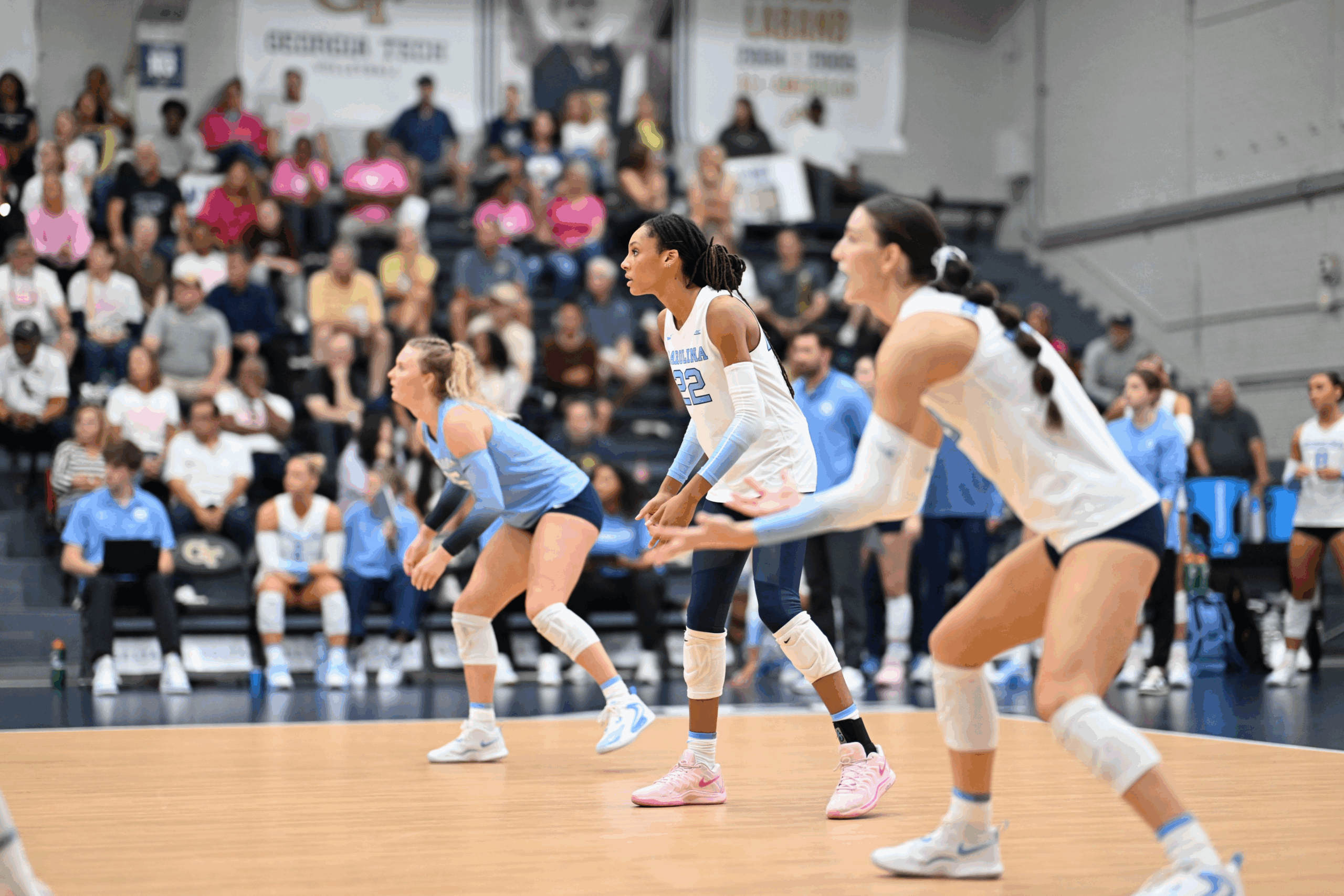
UNC men’s basketball head coach Dean Smith once famously declared Carolina to be “a women’s soccer school.” And while those outside of Chapel Hill may not have understood what he meant, anyone who steps on the UNC campus knows the truth of Smith’s statement.
The Tar Heels own 22 women’s soccer national championships, by far the most of any program in the country. All have come under head coach Anson Dorrance, for whom UNC’s soccer stadium is now named. Dorrance will enter his 44th season as head coach this fall.
To honor Dorrance’s program and to celebrate the 50th anniversary of Title IX, ACC Network will air the premiere of a documentary chronicling the Tar Heels’ run of dominance. “Hidden Dynasty: The Story of Carolina Women’s Soccer” will air Thursday night at 8 p.m., and features interviews with UNC stars Mia Hamm, Kristine Lilly, Dorrance and more.
The film’s executive producer, Ross Greenburg, was kind enough to speak with Chapelboro about the making of the film.
What first inspired you to make the film?
I did a documentary many years ago on “The ’99ers,” the U.S. National Team that beat China in the World Cup. And in doing that documentary, we traced that team all the way back to its beginning, which began with Anson Dorrance and Mia Hamm, Kristine Lilly and many others. Anson was instrumental in starting women’s soccer in this country and ultimately around the world. And two of his superstars on his first national team were Mia Hamm and Kristine Lilly. I became very familiar with Anson and we, myself and [producer] Bob Rauscher, approached a woman named Stacy McCollum at the ACC Network. And we knew that they were looking for documentary product, and we decided to hone in on this subject. The University of North Carolina women’s soccer team is probably the most prolific collegiate program in history. And we’re calling it “Hidden Dynasty” because other than soccer fans, people around the country are unaware of it. And so it was time to tell the story.
Why do you think it was important to release the film now?
Anson has been a part of it right from the beginning in 1979. And here we are in 2022, and he’s at the ripe old age of 71. And up to this point, nobody has really documented this program. It’s delivered some of the greatest superstars in the history of women’s soccer, many of whom have gone on to be coaches in the NCAA. It just made no sense that no one had documented this. And so I called Anson and he immediately understood what I wanted to do. And he was happy to tell his story and the team’s story. We did it from the point of view of the women as much as Anson. I mean, this is about them. This is about Title IX babies maturing and becoming legitimate, forceful athletes and being taken seriously on the field of play. UNC’s women’s soccer team is a shining example of what women have done over the last 40 years.
Was it hard not to be starstruck talking to people like Mia Hamm and Kristine Lilly?
In getting to know them over the years, they’re very down to earth people. They’ve never been entitled athletes. They’ve always had to work for everything they’ve gotten. One of the things that we show in this film is that it all started with a $2,500 budget per year that they were given. And they used to take vans all up and down the east coast. There were no plane rides out west or anything, unless they got into the NCAA Tournament. And then I guess they were flying, but believe me, they were in coach in middle seats. So you aren’t awestruck sitting next to Mia because she gives you such a down to earth attitude.
She struggled just like all of us through life. They never made any money and they never really had it easy. They were always working out on insufficient playing fields and scraping by without eating meals, because the team wasn’t providing or the school wasn’t providing meals for them. They used to call McDonald’s “McDorrance’s,” because every time they took a road trip to Virginia in these vans, they would always stop off at McDonald’s because that was all that the team could afford to eat.
Is there one statistic from their run that you keep going back to?
I don’t even remember the numbers, but over that nine year stretch, when they won nine consecutive NCAA championships – let me repeat that: nine consecutive NCAA championships they won, which is probably the most outstanding and astounding record in the history of American sports – they lost two games, I think in four or five seasons. It’s never been duplicated and probably never will. I’m doing a documentary now on Bill Russell, who won 11 NBA titles in 13 years. He never won nine in a row. It’s really remarkable. John Wooden’s UCLA Bruins are quite the dynasty, but this is pretty unparalleled.
What would you say was the main reason for the team’s success?
Well, I think one person would be Anson Dorrance, in creating the culture that he created. He came along at the right time, in the right place, post-Title IX, when for the first time women were given the equal opportunity of becoming athletes. And the sport of soccer was the kind of sport where you could take women and make them “alphas,” as he calls them. If you think of the Mia Hamms and the Kristine Lillys and Carla Overbecks, they were coming out of high school having been given the first opportunity to play high school soccer. No longer were they just cheerleaders. And so he created an atmosphere where they were able to challenge each other, compete on the field against each other during practice, and then take it out on their opponents.
By creating that atmosphere, he was beating everyone else to the punch. There was really no other program in America that was recruiting the way he did, and then ended up creating this culture that drove these women to great heights. They all really credit him, and probably take too little credit themselves for driving themselves and really competing on the field and creating this dynasty. So you have to credit every single woman that passed through North Carolina and put their cleats on and went onto the field and poured their hearts into creating the best women’s soccer team that ever was made.
What do you hope fans take away from the film?
Title IX may be 37 words, but I hope they understand that the women’s movement was wrapped around sports in many ways, in order to prove the equality that women deserved in our society. And much like Jackie Robinson in 1947, these women not only at North Carolina, but in every sport, when they were given the chance in the late 1980s to burst onto the collegiate scene after Title IX had been around for 15 or so years, those 15- or 16-year-old girls ran out onto all these fields and created a revolution. And they did it first on the fields of play, and in this case in North Carolina, on the soccer field. And all of a sudden you had women in the 1990s being treated equally everywhere, and starting to get the kind of treatment that they deserved in corporations and everywhere else in America. That sounds familiar. That sounds like civil rights to me. And so here we are in 2022, and there’s plenty of fighting still going on for women, with equal pay and being taken seriously in boardrooms and everywhere else in our society. These women were all instrumental in paving the way for equal rights in this country.
Featured image via UNC Athletic Communications
Chapelboro.com does not charge subscription fees, and you can directly support our efforts in local journalism here. Want more of what you see on Chapelboro? Let us bring free local news and community information to you by signing up for our biweekly newsletter.










